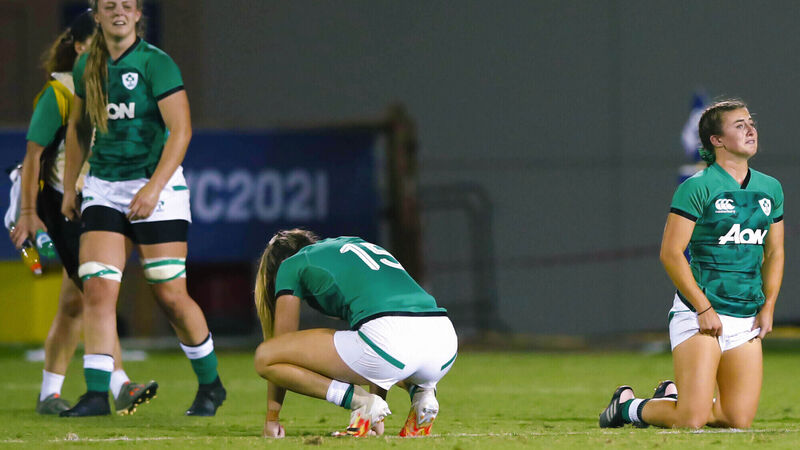Eimear Ryan: The underlying anxiety in women’s sports is that any progress can be rolled back

PAIN GAME: A dejected Eimear Considine (15) after Ireland’s defeat to Scotland in last Saturday’s World Cup qualifier in Parma. INPHO/Matteo Ciambelli
Try from €1.50 / week
SUBSCRIBE
PAIN GAME: A dejected Eimear Considine (15) after Ireland’s defeat to Scotland in last Saturday’s World Cup qualifier in Parma. Picture: INPHO/Matteo Ciambelli
Over the past few weeks, I’ve been rehabbing my right ankle which I broke in mid-July. It’s been going well so far — I’m back walking, driving, cycling, and swimming. (Not running yet. Definitely not skateboarding.) The swelling has gone down. The little micro-movements that my physio assigned to me are getting done a few times a day in front of Netflix. My limp is less and less pronounced. I’m back attending training, if not participating any further than a few tentative pucks.
But even as progress is being made, I still have a perfectly good left ankle to which I can always unfavourably compare the right. No matter how far it’s come since the cast came off in late August, I still mentally berate the right ankle for not being more like the left. ‘Why can’t you be more like your sister?’ and so forth.
Already a subscriber? Sign in
You have reached your article limit.
Annual €130 €80
Best value
Monthly €12€6 / month
Introductory offers for new customers. Annual billed once for first year. Renews at €130. Monthly initial discount (first 3 months) billed monthly, then €12 a month. Ts&Cs apply.
Newsletter
Latest news from the world of sport, along with the best in opinion from our outstanding team of sports writers. and reporters
Friday, February 13, 2026 - 7:00 AM
Friday, February 13, 2026 - 7:00 AM
Thursday, February 12, 2026 - 5:00 PM

Select your favourite newsletters and get the best of Irish Examiner delivered to your inbox
© Examiner Echo Group Limited